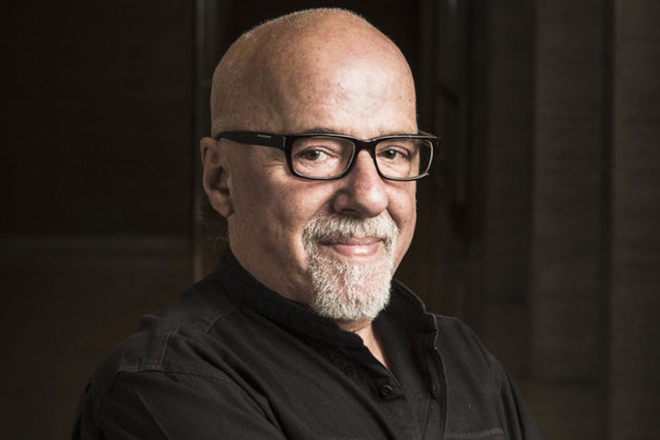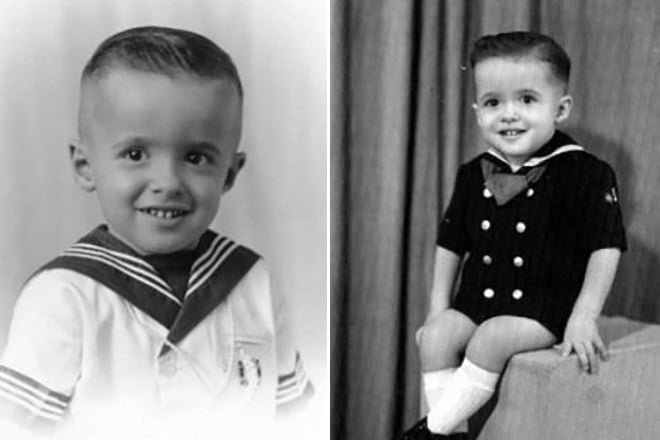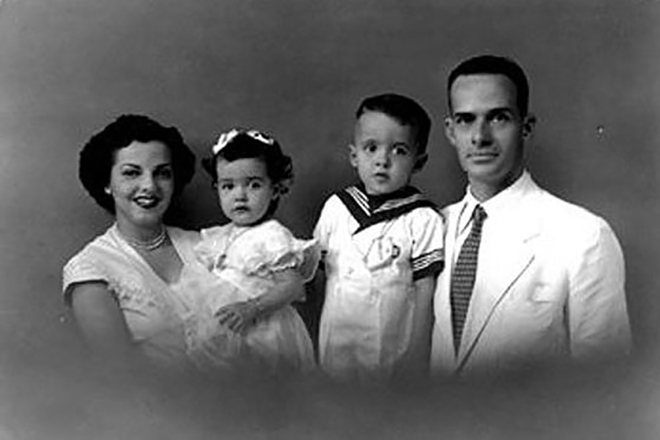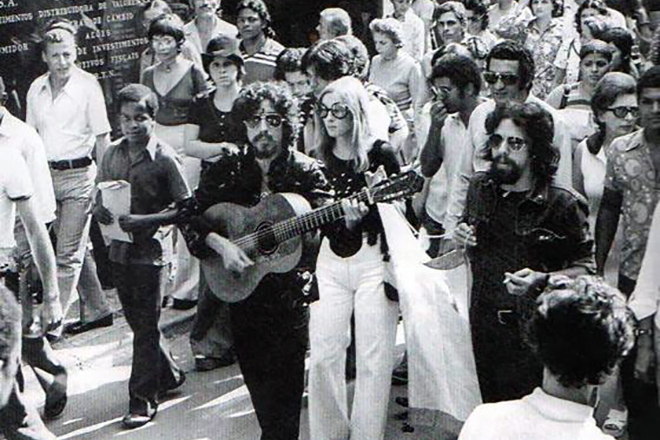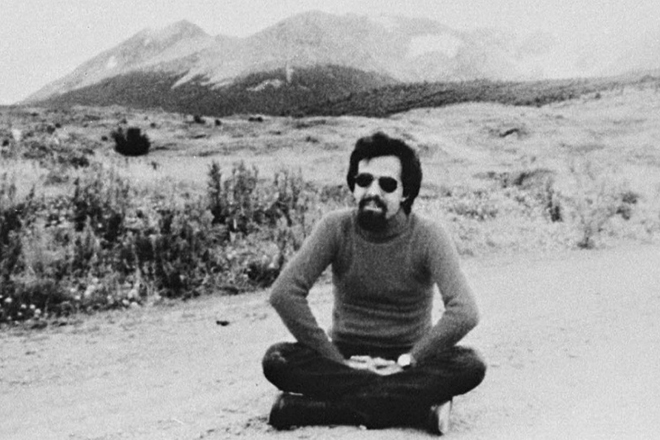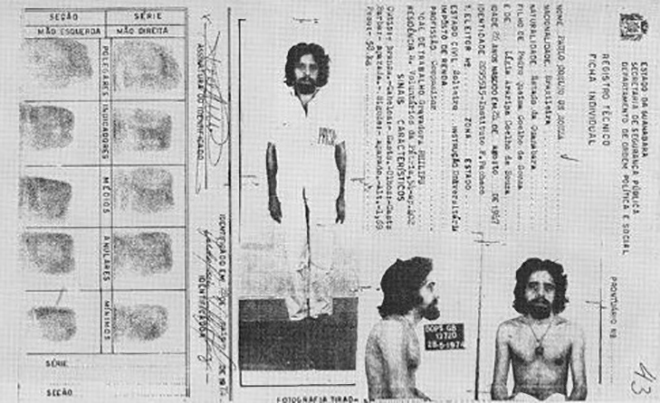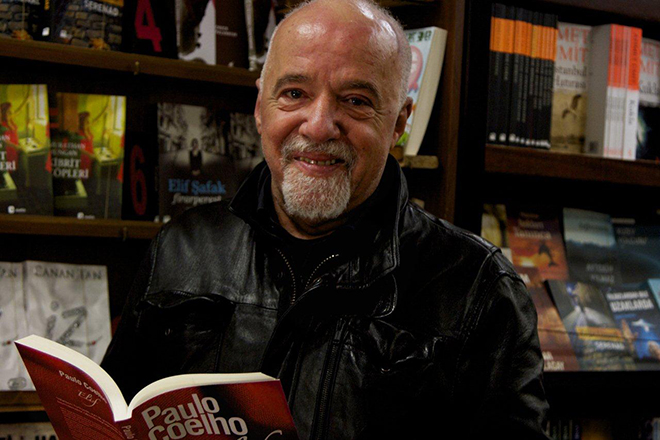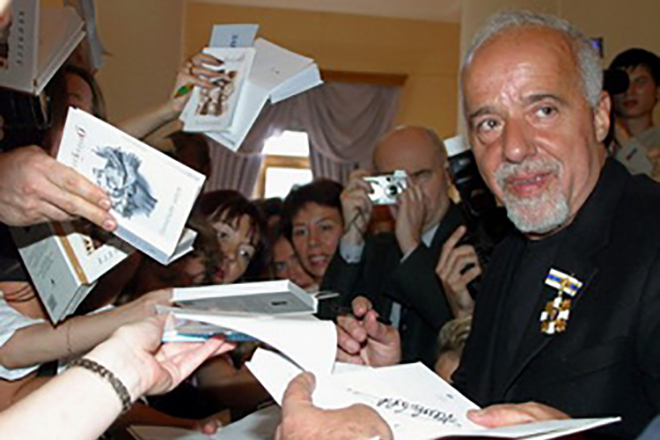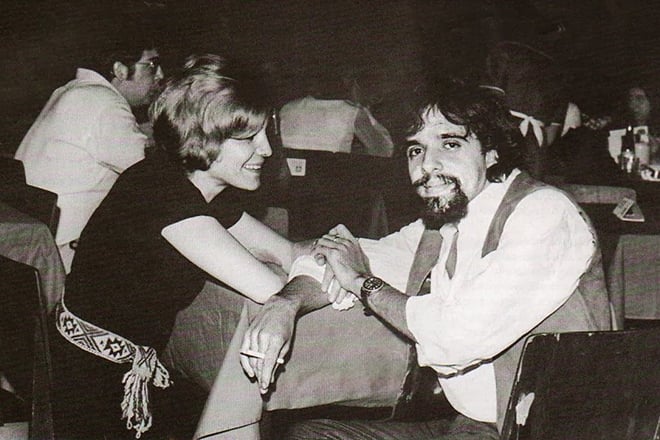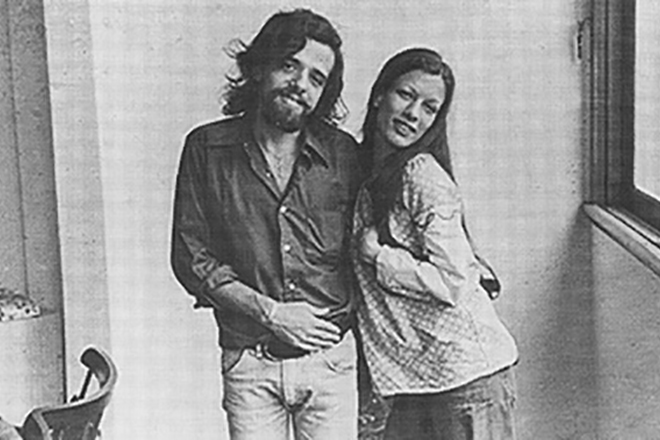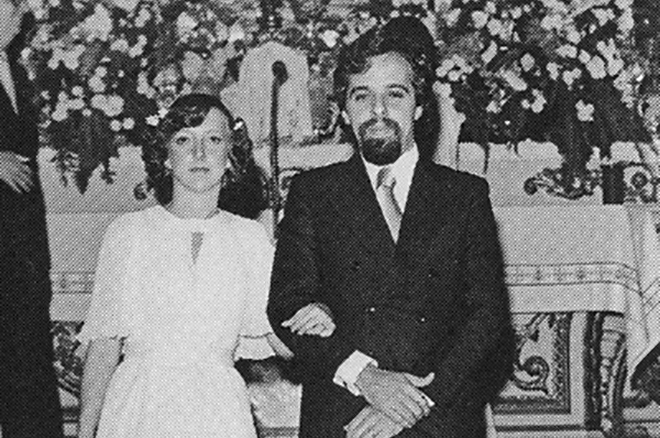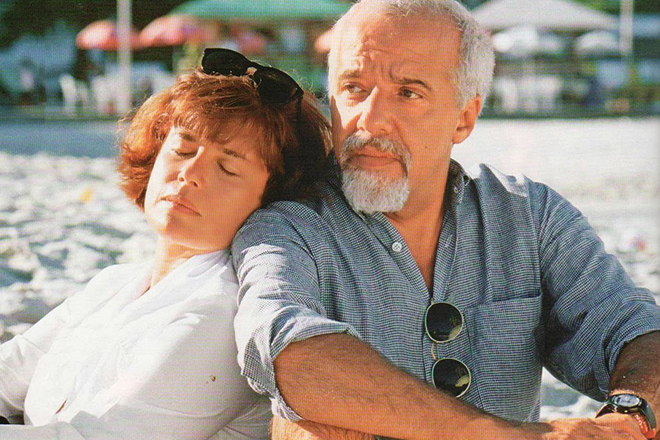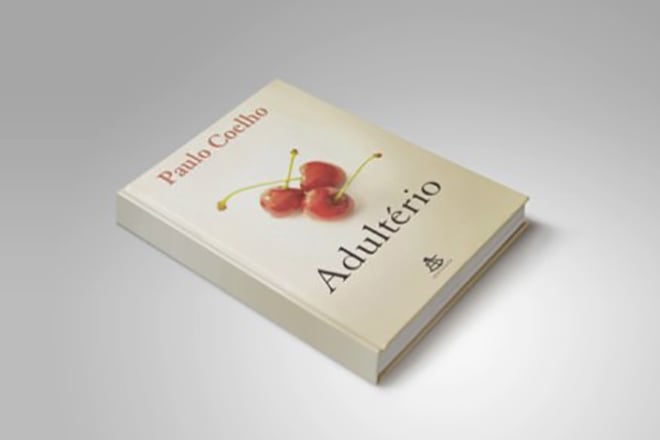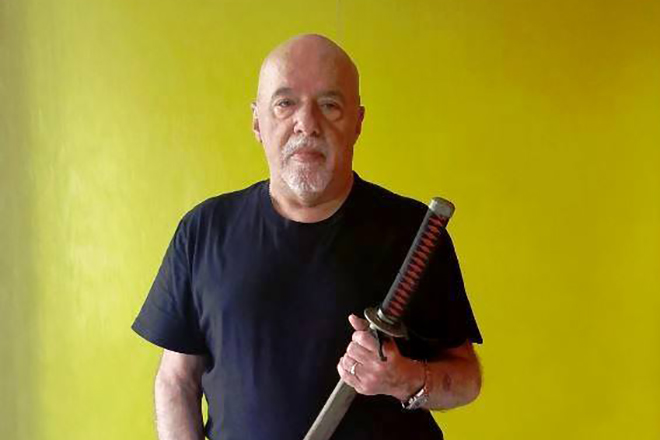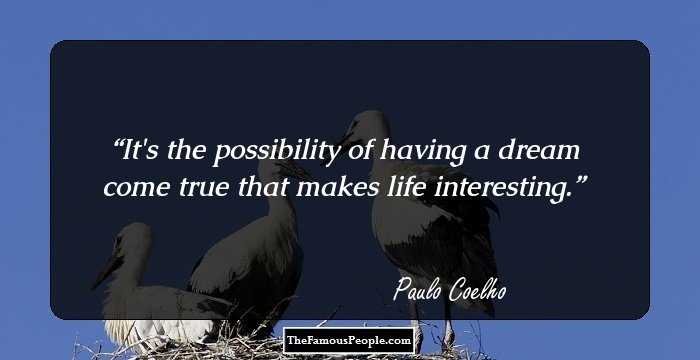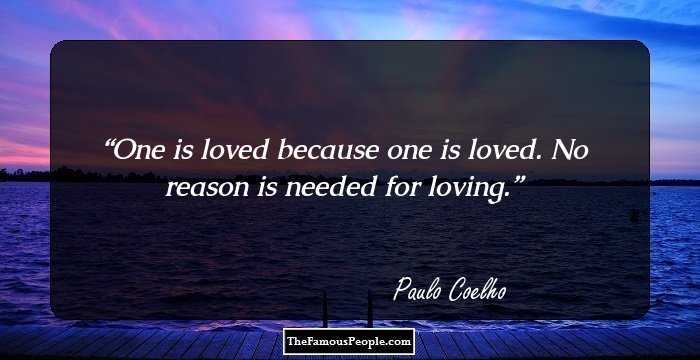From Wikipedia, the free encyclopedia
|
Paulo Coelho |
|
|---|---|

Coelho, 2007 |
|
| Born | Paulo Coelho de Souza 24 August 1947 (age 75) Rio de Janeiro, Brazil |
| Occupation |
|
| Genre | Drama, romance |
| Years active | 1974–present |
| Notable works | The Alchemist |
| Spouse |
Christina Oiticica (m. 1980) |
| Website | |
| paulocoelhoblog.com |
Paulo Coelho de Souza (,[1] Portuguese: [ˈpawlu kuˈeʎu]; born 24 August 1947) is a Brazilian lyricist and novelist and a member of the Brazilian Academy of Letters since 2002.[2] His novel The Alchemist became an international best-seller and he has published 28 more books since then.
Biography[edit]
Paulo Coelho was born in Rio de Janeiro, Brazil, and attended a Jesuit school. At 17, Coelho’s parents committed him to a mental institution from which he escaped three times before being released at the age of 20.[3][4] Coelho later remarked that «It wasn’t that they wanted to hurt me, but they didn’t know what to do… They did not do that to destroy me, they did that to save me.»[5]
At his parents’ wishes, Coelho enrolled in law school and abandoned his dream of becoming a writer. One year later, he dropped out and lived life as a hippie, traveling through South America, North Africa, Mexico, and Europe and started using drugs in the 1960s.[6][7]
Upon his return to Brazil, Coelho worked as a songwriter, composing lyrics for Elis Regina, Rita Lee, and Brazilian icon Raul Seixas. Composing with Raul led to Coelho being associated with magic and occultism, due to the content of some songs.[8] He is often accused that these songs were rip-offs of foreign songs not well known in Brazil at the time.[9] In 1974, by his account, he was arrested for «subversive» activities and tortured[10][11] by the ruling military government, who had taken power ten years earlier and viewed his lyrics as left-wing and dangerous.[5] Coelho also worked as an actor, journalist and theatre director before pursuing his writing career.[8]
Coelho married artist Christina Oiticica in 1980. Together they had previously spent half the year in Rio de Janeiro and the other half in a country house in the Pyrenees Mountains of France, but now the couple reside permanently in Geneva, Switzerland.[12]
In 1986 Coelho walked the 500-plus mile Road of Santiago de Compostela in northwestern Spain.[6][13] On the path, he had a spiritual awakening, which he described autobiographically in The Pilgrimage.[14] In an interview, Coelho stated «[In 1986], I was very happy in the things I was doing. I was doing something that gave me food and water – to use the metaphor in The Alchemist, I was working, I had a person whom I loved, I had money, but I was not fulfilling my dream. My dream was, and still is, to be a writer.»[15] Coelho would leave his lucrative career as a songwriter and pursue writing full-time.
The Pilgrim – Story of Paulo Coelho is the international title for the biographical film Não Pare na Pista, a co-production between Brazil’s Drama Films and the Spanish Babel Films, in which the younger and older Coelho are played by two different actors. One of the producers, Iôna de Macêdo, told Screen International: «The film tells the story of a man who has a dream. It’s a little like Alice in Wonderland – he’s someone who is too big for his house.» The film, shot in Portuguese, had its premiere in Brazilian theaters in 2014 and was internationally distributed in 2015.[16]
Career[edit]
In 1982, Coelho published his first book, Hell Archives, which failed to make a substantial impact.[8] In 1986 he contributed to the Practical Manual of Vampirism, although he later tried to take it off the shelves since he considered it «of bad quality.»[8] After making the pilgrimage to Santiago de Compostela in 1986, Coelho wrote The Pilgrimage, published in 1987.
While trying to overcome his procrastination about launching his writing career, Coelho decided, «If I see a white feather today, that is a sign that God is giving me that I have to write a new book.» Seeing one in the window of a shop, he began writing that day.[14] The following year, Coelho wrote The Alchemist and published it through a small Brazilian publishing house that made an initial print run of 900 copies and decided not to reprint it.[17] He subsequently found a bigger publishing house, and with the publication of his next book Brida, The Alchemist took off. HarperCollins decided to publish the book in 1994. Later it became an international bestseller.[17] In a 2009 interview with the Syrian Forward Magazine, Coelho stated that the Sufi tradition had been an influence on him, particularly when writing The Alchemist and later The Zahir.[18]
Since the publication of The Alchemist, Coelho has generally written at least one novel every two years. Four of them – The Pilgrimage, Hippie, The Valkyries and Aleph – are autobiographical, while the majority of the rest are broadly fictional.[6] Other books, like Maktub, The Manual of the Warrior of Light and Like the Flowing River, are collections of essays, newspaper columns, or selected teachings. His work has been published in more than 170 countries and translated into eighty-three languages. Together, his books have sold 320 million copies.[19]
On 22 December 2016, Coelho was listed by UK-based company Richtopia at number 2 in the list of 200 most influential contemporary authors.[20]
However, reactions to his writing have not been without controversy. Though he was raised in a Catholic family, and describes himself as of that faith even now, his stance has been described as incompatible with the Catholic faith, because of its New Age, pantheist and relativist contents.[21] And whatever his sales, reviews of Coelho’s later work consistently note its superficiality.[22][23][24]
In 2016, he was contacted by basketball player Kobe Bryant, who wanted to discuss a children’s book project with him. Some months before Bryant’s death in a helicopter crash in January 2020, they started to write the book together, but upon hearing about his passing, Coelho decided to delete the whole draft, saying in an interview that «it didn’t make any sense to publish without him.» He did not say how many pages had been written or whether the book had a title.[25][26]
In 2018, it was announced that Coelho had signed for a TV series based on the characters of his novels The Devil and Miss Prym, Brida and The Witch of Portobello.[27][28]
Bibliography[edit]
| Year | Portuguese title | English title |
|---|---|---|
| 1974 | Teatro da Educação | Theater For Education |
| 1982 | Arquivos do Inferno | Hell Archives |
| 1987 | O Diário de um Mago | The Pilgrimage |
| 1988 | O Alquimista | The Alchemist |
| 1990 | Brida | Brida |
| 1991 | O Dom Supremo | The Supreme Gift |
| 1992 | As Valkírias | The Valkyries |
| 1994 | Maktub | Maktub |
| Na Margem do Rio Piedra eu Sentei e Chorei | By the River Piedra I Sat Down and Wept | |
| 1996 | O Monte Cinco | The Fifth Mountain |
| 1997 | Cartas de Amor de um Profeta | Love Letters from a Prophet |
| Manual do Guerreiro da Luz | Manual of the Warrior of Light | |
| 1998 | Veronika Decide Morrer | Veronika Decides to Die |
| Palavras Essenciais | Essential Words | |
| 2000 | O Demônio e a Srta. Prym | The Devil and Miss Prym |
| 2001 | Historias para Pais, Filhos e Netos | Fathers, Sons and Grandsons |
| 2003 | Onze Minutos | Eleven Minutes |
| 2004 | O Gênio e as Rosas | The Genie and the Roses |
| Viagens | Journeys | |
| Vida | Life | |
| 2005 | O Zahir | The Zahir |
| Caminhos Recolhidos | Revived Paths | |
| 2006 | Ser Como o Rio que Flui | Like the Flowing River |
| A Bruxa de Portobello | The Witch of Portobello | |
| 2008 | O Vencedor Está Só | The Winner Stands Alone |
| 2009 | Amor | Love |
| 2010 | Aleph | Aleph |
| 2011 | Fábulas | |
| 2012 | Manuscrito Encontrado em Accra | Manuscript Found in Accra |
| 2014 | Adultério | Adultery |
| 2016 | A Espiã | The Spy |
| 2018 | Hippie | Hippie |
| 2020 | O Caminho do Arco | The Archer |
References[edit]
- ^ J C Wells (2008) Longman Pronunciation Dictionary. Pearson Education Limited.
- ^ Academia Brasileira de Letras (4 November 2014). «Paulo Coelho — Biografia».
- ^ Schaertl, Markia The Boy from Ipanema: Interview with Paulo Coelho reposted on Paulo Coelho’s Blog. 20 December 2007.
- ^ Doland, Angela Brazilian author Coelho thrives on contradictions and extremes Oakland Tribune published on The Washington Post. 12 May 2007.
- ^ a b Day, Elizabeth A mystery even to himself The Daily Telegraph. 14 June 2005.
- ^ a b c An interview with Brazilian writer, Paulo Coelho: Everybody is a Magus Archived 9 February 2014 at the Wayback Machine Life Positive. July 2000.
- ^ Life and Letters: The Magus The New Yorker. 7 May 2007.
- ^ a b c d Biography Archived 15 October 2009 at the Wayback Machine Official Site of Paulo Coelho.
- ^ «Cópia Infiel: Ato 1, Raul Seixas e o Dolo de Ouro». whiplash.net (in Brazilian Portuguese). Retrieved 9 October 2020.
- ^ The Washington Post (29 March 2019). «I was tortured by Brazil’s dictatorship. Is that what Bolsonaro wants to celebrate?». The Washington Post. Retrieved 30 March 2019.
- ^ Coelho, Paulo (30 March 2019). «28/5/1974». Retrieved 30 March 2019.
- ^ Brasileira, Cultura. «Interview with Paulo Coelho». Archived from the original on June 12, 2016.
- ^ Teacher’s Guide to The Alchemist Archived 27 March 2009 at the Wayback Machine Harper Collins Publisher.
- ^ a b Reiss, Valerie Paulo Coelho Dances with Angels Beliefnet.
- ^ Interview with Paulo Coelho BBC World Service Book Club. December 2004.
- ^ «Picture Tree Acquires Paulo Coelho Biopic ‘The Pilgrim’«. PMC. Retrieved 5 August 2014.
- ^ a b A Brief History of the Book Archived 2 August 2008 at the Wayback Machine Saint Jordi Asociados
- ^ «Forward Magazine». Fwmagazine. 12 April 2009. Retrieved 23 August 2020.
- ^ Karen Heller, Meet the writers who still sell millions of books. Actually, hundreds of millions, The Washington Post
- ^ «Authors Top 200: From J.K. Rowling to T. Harv Eker, These Are the Most Influential Authors in the World». Richtopia. Retrieved 21 January 2017.
- ^ Santamaría, Luis (23 July 2014). «Paulo Coelho: ¿alguna objeción desde la fe cristiana?» [Paulo Coelho: any objection from the Christian faith?]. Aleteia (in Spanish). Retrieved 22 May 2017.
- ^ «Adam Mars-Jones finds Paulo Coelho hurtling towards stupidity as he reaches for wisdom in The Zahir», The Observer, 19 June 2005
- ^ Rebecca K. Morrison, «New novels fails to stimulate», The Independent, 14 September 2014
- ^ Cameron Woodhead, «Paulo Coelho’s fictional take on Mata Hari misses the mark», The Sydney Morning Herald, 19 January 2017
- ^ Co-Author of Kobe Bryant Children’s Book Deletes Unfinished Draft
- ^ «Author deletes children’s book co-written with Kobe Bryant». Associated Press. 27 January 2020. Retrieved 28 January 2020.
- ^ Andreeva, Nellie (1 May 2018). «Drama Series Based On Books By ‘The Alchemist’ Author Paulo Coelho In Works At FremantleMedia North America».
- ^ «Paulo Coelho signs with FremantleMedia for first TV series».
External links[edit]
- Works by or about Paulo Coelho in libraries (WorldCat catalog)
- Official website
From Wikipedia, the free encyclopedia
|
Paulo Coelho |
|
|---|---|

Coelho, 2007 |
|
| Born | Paulo Coelho de Souza 24 August 1947 (age 75) Rio de Janeiro, Brazil |
| Occupation |
|
| Genre | Drama, romance |
| Years active | 1974–present |
| Notable works | The Alchemist |
| Spouse |
Christina Oiticica (m. 1980) |
| Website | |
| paulocoelhoblog.com |
Paulo Coelho de Souza (,[1] Portuguese: [ˈpawlu kuˈeʎu]; born 24 August 1947) is a Brazilian lyricist and novelist and a member of the Brazilian Academy of Letters since 2002.[2] His novel The Alchemist became an international best-seller and he has published 28 more books since then.
Biography[edit]
Paulo Coelho was born in Rio de Janeiro, Brazil, and attended a Jesuit school. At 17, Coelho’s parents committed him to a mental institution from which he escaped three times before being released at the age of 20.[3][4] Coelho later remarked that «It wasn’t that they wanted to hurt me, but they didn’t know what to do… They did not do that to destroy me, they did that to save me.»[5]
At his parents’ wishes, Coelho enrolled in law school and abandoned his dream of becoming a writer. One year later, he dropped out and lived life as a hippie, traveling through South America, North Africa, Mexico, and Europe and started using drugs in the 1960s.[6][7]
Upon his return to Brazil, Coelho worked as a songwriter, composing lyrics for Elis Regina, Rita Lee, and Brazilian icon Raul Seixas. Composing with Raul led to Coelho being associated with magic and occultism, due to the content of some songs.[8] He is often accused that these songs were rip-offs of foreign songs not well known in Brazil at the time.[9] In 1974, by his account, he was arrested for «subversive» activities and tortured[10][11] by the ruling military government, who had taken power ten years earlier and viewed his lyrics as left-wing and dangerous.[5] Coelho also worked as an actor, journalist and theatre director before pursuing his writing career.[8]
Coelho married artist Christina Oiticica in 1980. Together they had previously spent half the year in Rio de Janeiro and the other half in a country house in the Pyrenees Mountains of France, but now the couple reside permanently in Geneva, Switzerland.[12]
In 1986 Coelho walked the 500-plus mile Road of Santiago de Compostela in northwestern Spain.[6][13] On the path, he had a spiritual awakening, which he described autobiographically in The Pilgrimage.[14] In an interview, Coelho stated «[In 1986], I was very happy in the things I was doing. I was doing something that gave me food and water – to use the metaphor in The Alchemist, I was working, I had a person whom I loved, I had money, but I was not fulfilling my dream. My dream was, and still is, to be a writer.»[15] Coelho would leave his lucrative career as a songwriter and pursue writing full-time.
The Pilgrim – Story of Paulo Coelho is the international title for the biographical film Não Pare na Pista, a co-production between Brazil’s Drama Films and the Spanish Babel Films, in which the younger and older Coelho are played by two different actors. One of the producers, Iôna de Macêdo, told Screen International: «The film tells the story of a man who has a dream. It’s a little like Alice in Wonderland – he’s someone who is too big for his house.» The film, shot in Portuguese, had its premiere in Brazilian theaters in 2014 and was internationally distributed in 2015.[16]
Career[edit]
In 1982, Coelho published his first book, Hell Archives, which failed to make a substantial impact.[8] In 1986 he contributed to the Practical Manual of Vampirism, although he later tried to take it off the shelves since he considered it «of bad quality.»[8] After making the pilgrimage to Santiago de Compostela in 1986, Coelho wrote The Pilgrimage, published in 1987.
While trying to overcome his procrastination about launching his writing career, Coelho decided, «If I see a white feather today, that is a sign that God is giving me that I have to write a new book.» Seeing one in the window of a shop, he began writing that day.[14] The following year, Coelho wrote The Alchemist and published it through a small Brazilian publishing house that made an initial print run of 900 copies and decided not to reprint it.[17] He subsequently found a bigger publishing house, and with the publication of his next book Brida, The Alchemist took off. HarperCollins decided to publish the book in 1994. Later it became an international bestseller.[17] In a 2009 interview with the Syrian Forward Magazine, Coelho stated that the Sufi tradition had been an influence on him, particularly when writing The Alchemist and later The Zahir.[18]
Since the publication of The Alchemist, Coelho has generally written at least one novel every two years. Four of them – The Pilgrimage, Hippie, The Valkyries and Aleph – are autobiographical, while the majority of the rest are broadly fictional.[6] Other books, like Maktub, The Manual of the Warrior of Light and Like the Flowing River, are collections of essays, newspaper columns, or selected teachings. His work has been published in more than 170 countries and translated into eighty-three languages. Together, his books have sold 320 million copies.[19]
On 22 December 2016, Coelho was listed by UK-based company Richtopia at number 2 in the list of 200 most influential contemporary authors.[20]
However, reactions to his writing have not been without controversy. Though he was raised in a Catholic family, and describes himself as of that faith even now, his stance has been described as incompatible with the Catholic faith, because of its New Age, pantheist and relativist contents.[21] And whatever his sales, reviews of Coelho’s later work consistently note its superficiality.[22][23][24]
In 2016, he was contacted by basketball player Kobe Bryant, who wanted to discuss a children’s book project with him. Some months before Bryant’s death in a helicopter crash in January 2020, they started to write the book together, but upon hearing about his passing, Coelho decided to delete the whole draft, saying in an interview that «it didn’t make any sense to publish without him.» He did not say how many pages had been written or whether the book had a title.[25][26]
In 2018, it was announced that Coelho had signed for a TV series based on the characters of his novels The Devil and Miss Prym, Brida and The Witch of Portobello.[27][28]
Bibliography[edit]
| Year | Portuguese title | English title |
|---|---|---|
| 1974 | Teatro da Educação | Theater For Education |
| 1982 | Arquivos do Inferno | Hell Archives |
| 1987 | O Diário de um Mago | The Pilgrimage |
| 1988 | O Alquimista | The Alchemist |
| 1990 | Brida | Brida |
| 1991 | O Dom Supremo | The Supreme Gift |
| 1992 | As Valkírias | The Valkyries |
| 1994 | Maktub | Maktub |
| Na Margem do Rio Piedra eu Sentei e Chorei | By the River Piedra I Sat Down and Wept | |
| 1996 | O Monte Cinco | The Fifth Mountain |
| 1997 | Cartas de Amor de um Profeta | Love Letters from a Prophet |
| Manual do Guerreiro da Luz | Manual of the Warrior of Light | |
| 1998 | Veronika Decide Morrer | Veronika Decides to Die |
| Palavras Essenciais | Essential Words | |
| 2000 | O Demônio e a Srta. Prym | The Devil and Miss Prym |
| 2001 | Historias para Pais, Filhos e Netos | Fathers, Sons and Grandsons |
| 2003 | Onze Minutos | Eleven Minutes |
| 2004 | O Gênio e as Rosas | The Genie and the Roses |
| Viagens | Journeys | |
| Vida | Life | |
| 2005 | O Zahir | The Zahir |
| Caminhos Recolhidos | Revived Paths | |
| 2006 | Ser Como o Rio que Flui | Like the Flowing River |
| A Bruxa de Portobello | The Witch of Portobello | |
| 2008 | O Vencedor Está Só | The Winner Stands Alone |
| 2009 | Amor | Love |
| 2010 | Aleph | Aleph |
| 2011 | Fábulas | |
| 2012 | Manuscrito Encontrado em Accra | Manuscript Found in Accra |
| 2014 | Adultério | Adultery |
| 2016 | A Espiã | The Spy |
| 2018 | Hippie | Hippie |
| 2020 | O Caminho do Arco | The Archer |
References[edit]
- ^ J C Wells (2008) Longman Pronunciation Dictionary. Pearson Education Limited.
- ^ Academia Brasileira de Letras (4 November 2014). «Paulo Coelho — Biografia».
- ^ Schaertl, Markia The Boy from Ipanema: Interview with Paulo Coelho reposted on Paulo Coelho’s Blog. 20 December 2007.
- ^ Doland, Angela Brazilian author Coelho thrives on contradictions and extremes Oakland Tribune published on The Washington Post. 12 May 2007.
- ^ a b Day, Elizabeth A mystery even to himself The Daily Telegraph. 14 June 2005.
- ^ a b c An interview with Brazilian writer, Paulo Coelho: Everybody is a Magus Archived 9 February 2014 at the Wayback Machine Life Positive. July 2000.
- ^ Life and Letters: The Magus The New Yorker. 7 May 2007.
- ^ a b c d Biography Archived 15 October 2009 at the Wayback Machine Official Site of Paulo Coelho.
- ^ «Cópia Infiel: Ato 1, Raul Seixas e o Dolo de Ouro». whiplash.net (in Brazilian Portuguese). Retrieved 9 October 2020.
- ^ The Washington Post (29 March 2019). «I was tortured by Brazil’s dictatorship. Is that what Bolsonaro wants to celebrate?». The Washington Post. Retrieved 30 March 2019.
- ^ Coelho, Paulo (30 March 2019). «28/5/1974». Retrieved 30 March 2019.
- ^ Brasileira, Cultura. «Interview with Paulo Coelho». Archived from the original on June 12, 2016.
- ^ Teacher’s Guide to The Alchemist Archived 27 March 2009 at the Wayback Machine Harper Collins Publisher.
- ^ a b Reiss, Valerie Paulo Coelho Dances with Angels Beliefnet.
- ^ Interview with Paulo Coelho BBC World Service Book Club. December 2004.
- ^ «Picture Tree Acquires Paulo Coelho Biopic ‘The Pilgrim’«. PMC. Retrieved 5 August 2014.
- ^ a b A Brief History of the Book Archived 2 August 2008 at the Wayback Machine Saint Jordi Asociados
- ^ «Forward Magazine». Fwmagazine. 12 April 2009. Retrieved 23 August 2020.
- ^ Karen Heller, Meet the writers who still sell millions of books. Actually, hundreds of millions, The Washington Post
- ^ «Authors Top 200: From J.K. Rowling to T. Harv Eker, These Are the Most Influential Authors in the World». Richtopia. Retrieved 21 January 2017.
- ^ Santamaría, Luis (23 July 2014). «Paulo Coelho: ¿alguna objeción desde la fe cristiana?» [Paulo Coelho: any objection from the Christian faith?]. Aleteia (in Spanish). Retrieved 22 May 2017.
- ^ «Adam Mars-Jones finds Paulo Coelho hurtling towards stupidity as he reaches for wisdom in The Zahir», The Observer, 19 June 2005
- ^ Rebecca K. Morrison, «New novels fails to stimulate», The Independent, 14 September 2014
- ^ Cameron Woodhead, «Paulo Coelho’s fictional take on Mata Hari misses the mark», The Sydney Morning Herald, 19 January 2017
- ^ Co-Author of Kobe Bryant Children’s Book Deletes Unfinished Draft
- ^ «Author deletes children’s book co-written with Kobe Bryant». Associated Press. 27 January 2020. Retrieved 28 January 2020.
- ^ Andreeva, Nellie (1 May 2018). «Drama Series Based On Books By ‘The Alchemist’ Author Paulo Coelho In Works At FremantleMedia North America».
- ^ «Paulo Coelho signs with FremantleMedia for first TV series».
External links[edit]
- Works by or about Paulo Coelho in libraries (WorldCat catalog)
- Official website
From Wikipedia, the free encyclopedia
|
Paulo Coelho |
|
|---|---|

Coelho, 2007 |
|
| Born | Paulo Coelho de Souza 24 August 1947 (age 75) Rio de Janeiro, Brazil |
| Occupation |
|
| Genre | Drama, romance |
| Years active | 1974–present |
| Notable works | The Alchemist |
| Spouse |
Christina Oiticica (m. 1980) |
| Website | |
| paulocoelhoblog.com |
Paulo Coelho de Souza (,[1] Portuguese: [ˈpawlu kuˈeʎu]; born 24 August 1947) is a Brazilian lyricist and novelist and a member of the Brazilian Academy of Letters since 2002.[2] His novel The Alchemist became an international best-seller and he has published 28 more books since then.
Biography[edit]
Paulo Coelho was born in Rio de Janeiro, Brazil, and attended a Jesuit school. At 17, Coelho’s parents committed him to a mental institution from which he escaped three times before being released at the age of 20.[3][4] Coelho later remarked that «It wasn’t that they wanted to hurt me, but they didn’t know what to do… They did not do that to destroy me, they did that to save me.»[5]
At his parents’ wishes, Coelho enrolled in law school and abandoned his dream of becoming a writer. One year later, he dropped out and lived life as a hippie, traveling through South America, North Africa, Mexico, and Europe and started using drugs in the 1960s.[6][7]
Upon his return to Brazil, Coelho worked as a songwriter, composing lyrics for Elis Regina, Rita Lee, and Brazilian icon Raul Seixas. Composing with Raul led to Coelho being associated with magic and occultism, due to the content of some songs.[8] He is often accused that these songs were rip-offs of foreign songs not well known in Brazil at the time.[9] In 1974, by his account, he was arrested for «subversive» activities and tortured[10][11] by the ruling military government, who had taken power ten years earlier and viewed his lyrics as left-wing and dangerous.[5] Coelho also worked as an actor, journalist and theatre director before pursuing his writing career.[8]
Coelho married artist Christina Oiticica in 1980. Together they had previously spent half the year in Rio de Janeiro and the other half in a country house in the Pyrenees Mountains of France, but now the couple reside permanently in Geneva, Switzerland.[12]
In 1986 Coelho walked the 500-plus mile Road of Santiago de Compostela in northwestern Spain.[6][13] On the path, he had a spiritual awakening, which he described autobiographically in The Pilgrimage.[14] In an interview, Coelho stated «[In 1986], I was very happy in the things I was doing. I was doing something that gave me food and water – to use the metaphor in The Alchemist, I was working, I had a person whom I loved, I had money, but I was not fulfilling my dream. My dream was, and still is, to be a writer.»[15] Coelho would leave his lucrative career as a songwriter and pursue writing full-time.
The Pilgrim – Story of Paulo Coelho is the international title for the biographical film Não Pare na Pista, a co-production between Brazil’s Drama Films and the Spanish Babel Films, in which the younger and older Coelho are played by two different actors. One of the producers, Iôna de Macêdo, told Screen International: «The film tells the story of a man who has a dream. It’s a little like Alice in Wonderland – he’s someone who is too big for his house.» The film, shot in Portuguese, had its premiere in Brazilian theaters in 2014 and was internationally distributed in 2015.[16]
Career[edit]
In 1982, Coelho published his first book, Hell Archives, which failed to make a substantial impact.[8] In 1986 he contributed to the Practical Manual of Vampirism, although he later tried to take it off the shelves since he considered it «of bad quality.»[8] After making the pilgrimage to Santiago de Compostela in 1986, Coelho wrote The Pilgrimage, published in 1987.
While trying to overcome his procrastination about launching his writing career, Coelho decided, «If I see a white feather today, that is a sign that God is giving me that I have to write a new book.» Seeing one in the window of a shop, he began writing that day.[14] The following year, Coelho wrote The Alchemist and published it through a small Brazilian publishing house that made an initial print run of 900 copies and decided not to reprint it.[17] He subsequently found a bigger publishing house, and with the publication of his next book Brida, The Alchemist took off. HarperCollins decided to publish the book in 1994. Later it became an international bestseller.[17] In a 2009 interview with the Syrian Forward Magazine, Coelho stated that the Sufi tradition had been an influence on him, particularly when writing The Alchemist and later The Zahir.[18]
Since the publication of The Alchemist, Coelho has generally written at least one novel every two years. Four of them – The Pilgrimage, Hippie, The Valkyries and Aleph – are autobiographical, while the majority of the rest are broadly fictional.[6] Other books, like Maktub, The Manual of the Warrior of Light and Like the Flowing River, are collections of essays, newspaper columns, or selected teachings. His work has been published in more than 170 countries and translated into eighty-three languages. Together, his books have sold 320 million copies.[19]
On 22 December 2016, Coelho was listed by UK-based company Richtopia at number 2 in the list of 200 most influential contemporary authors.[20]
However, reactions to his writing have not been without controversy. Though he was raised in a Catholic family, and describes himself as of that faith even now, his stance has been described as incompatible with the Catholic faith, because of its New Age, pantheist and relativist contents.[21] And whatever his sales, reviews of Coelho’s later work consistently note its superficiality.[22][23][24]
In 2016, he was contacted by basketball player Kobe Bryant, who wanted to discuss a children’s book project with him. Some months before Bryant’s death in a helicopter crash in January 2020, they started to write the book together, but upon hearing about his passing, Coelho decided to delete the whole draft, saying in an interview that «it didn’t make any sense to publish without him.» He did not say how many pages had been written or whether the book had a title.[25][26]
In 2018, it was announced that Coelho had signed for a TV series based on the characters of his novels The Devil and Miss Prym, Brida and The Witch of Portobello.[27][28]
Bibliography[edit]
| Year | Portuguese title | English title |
|---|---|---|
| 1974 | Teatro da Educação | Theater For Education |
| 1982 | Arquivos do Inferno | Hell Archives |
| 1987 | O Diário de um Mago | The Pilgrimage |
| 1988 | O Alquimista | The Alchemist |
| 1990 | Brida | Brida |
| 1991 | O Dom Supremo | The Supreme Gift |
| 1992 | As Valkírias | The Valkyries |
| 1994 | Maktub | Maktub |
| Na Margem do Rio Piedra eu Sentei e Chorei | By the River Piedra I Sat Down and Wept | |
| 1996 | O Monte Cinco | The Fifth Mountain |
| 1997 | Cartas de Amor de um Profeta | Love Letters from a Prophet |
| Manual do Guerreiro da Luz | Manual of the Warrior of Light | |
| 1998 | Veronika Decide Morrer | Veronika Decides to Die |
| Palavras Essenciais | Essential Words | |
| 2000 | O Demônio e a Srta. Prym | The Devil and Miss Prym |
| 2001 | Historias para Pais, Filhos e Netos | Fathers, Sons and Grandsons |
| 2003 | Onze Minutos | Eleven Minutes |
| 2004 | O Gênio e as Rosas | The Genie and the Roses |
| Viagens | Journeys | |
| Vida | Life | |
| 2005 | O Zahir | The Zahir |
| Caminhos Recolhidos | Revived Paths | |
| 2006 | Ser Como o Rio que Flui | Like the Flowing River |
| A Bruxa de Portobello | The Witch of Portobello | |
| 2008 | O Vencedor Está Só | The Winner Stands Alone |
| 2009 | Amor | Love |
| 2010 | Aleph | Aleph |
| 2011 | Fábulas | |
| 2012 | Manuscrito Encontrado em Accra | Manuscript Found in Accra |
| 2014 | Adultério | Adultery |
| 2016 | A Espiã | The Spy |
| 2018 | Hippie | Hippie |
| 2020 | O Caminho do Arco | The Archer |
References[edit]
- ^ J C Wells (2008) Longman Pronunciation Dictionary. Pearson Education Limited.
- ^ Academia Brasileira de Letras (4 November 2014). «Paulo Coelho — Biografia».
- ^ Schaertl, Markia The Boy from Ipanema: Interview with Paulo Coelho reposted on Paulo Coelho’s Blog. 20 December 2007.
- ^ Doland, Angela Brazilian author Coelho thrives on contradictions and extremes Oakland Tribune published on The Washington Post. 12 May 2007.
- ^ a b Day, Elizabeth A mystery even to himself The Daily Telegraph. 14 June 2005.
- ^ a b c An interview with Brazilian writer, Paulo Coelho: Everybody is a Magus Archived 9 February 2014 at the Wayback Machine Life Positive. July 2000.
- ^ Life and Letters: The Magus The New Yorker. 7 May 2007.
- ^ a b c d Biography Archived 15 October 2009 at the Wayback Machine Official Site of Paulo Coelho.
- ^ «Cópia Infiel: Ato 1, Raul Seixas e o Dolo de Ouro». whiplash.net (in Brazilian Portuguese). Retrieved 9 October 2020.
- ^ The Washington Post (29 March 2019). «I was tortured by Brazil’s dictatorship. Is that what Bolsonaro wants to celebrate?». The Washington Post. Retrieved 30 March 2019.
- ^ Coelho, Paulo (30 March 2019). «28/5/1974». Retrieved 30 March 2019.
- ^ Brasileira, Cultura. «Interview with Paulo Coelho». Archived from the original on June 12, 2016.
- ^ Teacher’s Guide to The Alchemist Archived 27 March 2009 at the Wayback Machine Harper Collins Publisher.
- ^ a b Reiss, Valerie Paulo Coelho Dances with Angels Beliefnet.
- ^ Interview with Paulo Coelho BBC World Service Book Club. December 2004.
- ^ «Picture Tree Acquires Paulo Coelho Biopic ‘The Pilgrim’«. PMC. Retrieved 5 August 2014.
- ^ a b A Brief History of the Book Archived 2 August 2008 at the Wayback Machine Saint Jordi Asociados
- ^ «Forward Magazine». Fwmagazine. 12 April 2009. Retrieved 23 August 2020.
- ^ Karen Heller, Meet the writers who still sell millions of books. Actually, hundreds of millions, The Washington Post
- ^ «Authors Top 200: From J.K. Rowling to T. Harv Eker, These Are the Most Influential Authors in the World». Richtopia. Retrieved 21 January 2017.
- ^ Santamaría, Luis (23 July 2014). «Paulo Coelho: ¿alguna objeción desde la fe cristiana?» [Paulo Coelho: any objection from the Christian faith?]. Aleteia (in Spanish). Retrieved 22 May 2017.
- ^ «Adam Mars-Jones finds Paulo Coelho hurtling towards stupidity as he reaches for wisdom in The Zahir», The Observer, 19 June 2005
- ^ Rebecca K. Morrison, «New novels fails to stimulate», The Independent, 14 September 2014
- ^ Cameron Woodhead, «Paulo Coelho’s fictional take on Mata Hari misses the mark», The Sydney Morning Herald, 19 January 2017
- ^ Co-Author of Kobe Bryant Children’s Book Deletes Unfinished Draft
- ^ «Author deletes children’s book co-written with Kobe Bryant». Associated Press. 27 January 2020. Retrieved 28 January 2020.
- ^ Andreeva, Nellie (1 May 2018). «Drama Series Based On Books By ‘The Alchemist’ Author Paulo Coelho In Works At FremantleMedia North America».
- ^ «Paulo Coelho signs with FremantleMedia for first TV series».
External links[edit]
- Works by or about Paulo Coelho in libraries (WorldCat catalog)
- Official website
Paulo Coelho: biography
Paulo Coelho is a talented writer who, probably, does not need to be introduced. The Brazilian author has won many international awards in literature; his name is included in Guinness World Records, and the man received the Legion of Honor. These are only a few achievements of the prominent author.
Childhood and youth
The future writer was born in Rio de Janeiro on August 24, 1947. The family was quite wealthy. The boy attended a Catholic school that instilled the competitive spirit and the urge to surpass others in students; the development of individual talents was a significant issue.
Because of such a specific approach, the teenager started despising the traditional life. He wanted to master his literary skills and explore the world, but the parents viewed that as a signal of insanity and put their son to a mental hospital. For the next three years, the young man was locked there; he fled three times and was returned. Schizophrenia was the official diagnosis.
The parents reached their goal: their son gave up his plans to write books and entered a school of law. The rebellious nature and intolerance to imposed opinions won, though: the next year, Coelho began to build his own life and quit his studies to join the hippie movement. At that time, the would-be writer traveled across all countries of South America and visited Europe and North America as well. It was the time of freedom, vagrancy, and even drugs.
Paulo came back home several years later; he did not resume his studies and earned his living by songwriting for popular rock artists. All in all, the poet created more than a hundred works on social topics. There was another interest: occultism and self-proclaimed black magician Aleister Crowley’s ideas.
In addition, the young man worked part-time as a journalist and theater director; he played several parts himself. In his spare time, Paulo communicated with his anarchist friends, who founded an anti-governmental organization. Military leaders could not but notice such an unusual person as Paulo Coelho; he was accused of anti-governmental activities and imprisoned. Some sources claim the man was tortured there.
The fact that Paulo had been treated for schizophrenia as a teenager saved him: old medical documents gave the ground to identify him as an irresponsible person and set him free.
One day, Paulo’s life changed dramatically: he met a member of a Catholic religious order who explored Evangelic secrets. This man became Coelho’s spiritual guide; under his influence, the would-be author went on a pilgrimage to Santiago de Compostela, Spain, where the shrine of Saint James the Greater was located. According to Paulo, it dawned upon him that songwriting was not his destiny – literature was.
Literature
It is hardly possible to say what caused the decision: it could be supreme forces or the fact that Coelho got sick of wasting his talent. Whatever the reason was, the man’s childhood dream came true: he began to write. The first book was based on the author’s pilgrimage – the impressions were still fresh. The Pilgrimage was released in 1987. Although it did not bring him as much fame as The Alchemist, it increased pilgrims’ and tourists’ interest in the places described in the text.
The Alchemist came out the next year; this story became iconic and continues to be discussed by literature lovers all over the globe. Surprisingly, the novel did not raise much interest among readers; only several hundreds of copies were sold. In 1994, the book was re-released in the United States and proved to be a bestseller within days. Coelho gained what he had wished – international recognition and the status of a real writer.
The next book, Brida, was presented in 1990. From that time, the author released one book per two years; many earned people’s love in various countries, but none of them repeated the success of The Alchemist. Veronika Decides to Die, Eleven Minutes, The Fifth Mountain, The Winner Stands Alone, The Zahir, and Maktub are the most popular works. Three books are autobiographical: The Valkyries, The Pilgrimage, and Aleph.
Coelho’s novels have been sold in 170 countries; his quotes travel all over the globe. Those who choose the way of self-improvement appreciate Manual of the Warrior of Light. There have been several screen adaptations of the author’s stories. Each new book evokes much excitement among fans, while critics’ opinions are less favorable. Some of them write smashing reviews and bring down the writer’s style and content. Still, criticism cannot reduce fans’ sincere love.
Personal life
Paulo Coelho’s personal life has always been abundant; women liked him when he was only a teenager.
The first wife, Vera Richter, was born in Belgrade, Yugoslavia. She was eleven years older than her husband; perhaps, this fact caused the quick break-up.
At the age of 25, Coelho met Adalgisa Rios. The hippie could not resist the extravagant beauty; they were wandering around the world and took light drugs; everything seemed to be cloudless. Still, the relationship ran out of its steam soon.
Cissa McDowell became the great writer’s next wife; she was 19 at that time. The couple spent together three years.
Today, Paulo Coelho is happily married to his fourth wife, Christina Oiticica; they met in the early 1980s. Perhaps, the secret of their strong union is that the woman helped the writer believe in himself.
Oiticica has always supported her beloved one and even organized the travel when Paulo met his spiritual guide.
Present days
Nowadays, the writer continues to create novels; Love, Adultery, The Spy, and Hippie are the most recent works. Coelho has been included in Guinness World Records as the author whose book was most frequently translated in his lifetime – it was The Alchemist.
Apart from writing, the man has other interests. He founded an organization in Brazil that helps people protect their rights; according to the author, it was the basis of a happy life and fruitful creation.
The writer participates in the preparation of the screen adaptation of The Alchemist. Rumors have it Idris Elba will play the lead character; Laurence Fishburne will be the director.
Journalists often call the writer the man of a new age for his intelligence and, simultaneously, inner liberty. One should give credit to Coelho and his strong character: he went through a mental hospital and prison without rejecting his childhood dream. He has given many pleasant hours to those who love his books.
Paulo Coelho’s net worth is $500 million in 2019.
Bibliography
- The Pilgrimage, 1987
- The Alchemist, 1988
- Brida, 1990
- The Valkyries, 1992
- Maktub, 1994
- By the River Piedra I Sat Down and Wept, 1994
- The Fifth Mountain, 1996
- Manual of the Warrior of Light, 1997
- Love Letters from a Prophet, 1997
- Veronica Decides to Die, 1998
- The Devil and Miss Prym, 2000
- Fathers, Sons and Grandsons, 2001
- Eleven Minutes, 2003
- The Zahir, 2005
- Like the Flowing River, 2006
- The Witch of Portobello, 2007
- The Winner Stands Alone, 2008
- Aleph, 2011
- Manuscript Found in Accra, 2012
- Adultery, 2014
Quotes
Stay insane, but behave like normal people (Veronika Decides to Die)
When you want something; all the universe conspires in helping you to achieve it (The Alchemist)
For her, every day was the same, and when each day is the same as next, it’s because people fail to recognize the good things that happen in their lives every day the sun rises (The Alchemist)
They all believe that man feels desire for only eleven minutes a day, and that they’ll pay a fortune for it. That’s not true; a man is also a woman; he wants to find someone, to give meaning to his life. (Eleven Minutes)
Sometimes you have to die to start living (Veronika Decides to Die)
(1947-)
Who Is Paulo Coelho?
Paulo Coelho is a Brazilian author. When Coelho was 38 years old, he had a spiritual awakening in Spain and wrote about it in his first book, The Pilgrimage. It was his second book, The Alchemist, which made him famous. He’s sold 35 million copies and now writes about one book every two years.
Early Life
Coelho was born on August 24, 1947, in Rio de Janeiro, Brazil. Coelho attended Jesuit schools and was raised by devout Catholic parents. He determined early on that he wanted to be a writer but was discouraged by his parents, who saw no future in that profession in Brazil. Coelho’s rebellious adolescence spurred his parents to commit him to a mental asylum three times, starting when he was 17. «I have forgiven,» Coelho said. «It happens with love, all the time — when you have this love towards someone else, but you want this person to change, to be like you. And then love can be very destructive.»
Coelho eventually got out of institutional care and enrolled in law school, but dropped out to indulge in the «sex, drugs and rock ‘n’ roll» of hippie life in the 1970s. He wrote song lyrics for Brazilian musicians protesting the country’s military rule. He was jailed three times for his political activism and subjected to torture in prison.
Pilgrimage
After drifting among several professions, Coelho changed his life’s course while on a visit to Spain in 1986 at the age of 39. Coelho walked more than 500 miles along the Road to Santiago de Compostela, a site of Catholic pilgrimage. The walk and the spiritual awakening he experienced en route inspired him to write The Pilgrimage, an autobiographical account of the trek, in his native Portuguese. He quit his other jobs and devoted himself full-time to the craft of writing.
‘The Alchemist’
In 1987, Coelho wrote a new book, The Alchemist, over the course of one two-week spurt of creativity. The allegorical novel was about an Andalusian shepherd boy who follows a mystical trek in which he learns to speak the «Language of the World» and thus receives his heart’s desire. The book attracted little attention at first, until a French-language translation suddenly leapt onto bestseller lists in France in the early 1990s. New translations followed, and soon The Alchemist became a worldwide phenomenon. The book has sold, by Coelho’s count, roughly 35 million copies, and is now the most translated book in the world by any living author.
Since the publication of The Alchemist, Coelho has produced a new book at a rate of about one every two years. In a somewhat unusual scheduling ritual, he allows himself to begin the writing process for a new book only after he has found a white feather in the January of an odd year. As odd as that may sound, it seems to be working. His 26 books have sold more than 65 million copies in at least 59 languages.
Personal Life
Coelho’s fans call his books inspiring and life-changing. His critics dismiss his writing as New Age drivel, promoting a vague spirituality devoid of rigor. A confident writer who rejects the self-help label—»I am not a self-help writer; I am a self-problem writer»—Coelho dismisses his naysayers’ critiques. «When I write a book I write a book for myself; the reaction is up to the reader,» he says. «It’s not my business whether people like or dislike it.»
Coelho has been married to his wife, the artist Christina Oiticica, since 1980. Together the couple spends half the year in Rio de Janeiro and the other half in a country house in the Pyrenees Mountains of France. In 1996, Coelho founded the Paulo Coelho Institute, which provides support to children and the elderly. He continues to write, following his own version of The Alchemist‘s «Language of the World.»
«[Jorge Luis] Borges said there are only four stories to tell: a love story between two people, a love story between three people, the struggle for power and the voyage,» Coelho has said. «All of us writers rewrite these same stories ad infinitum.»
QUICK FACTS
- Birth Year: 1947
- Birth date: August 24, 1947
- Birth City: Rio de Janeiro
- Birth Country: Brazil
- Gender: Male
- Best Known For: Paulo Coelho wrote the best-selling novel, ‘The Alchemist,’ which sold 35 million copies and is the most translated book in the world by a living author.
- Industries
- Fiction and Poetry
- Astrological Sign: Virgo
- Nacionalities
- Brazilian
Fact Check
We strive for accuracy and fairness.If you see something that doesn’t look right,contact us!
CITATION INFORMATION
- Article Title: Paulo Coelho Biography
- Author: Biography.com Editors
- Website Name: The Biography.com website
- Url: https://www.biography.com/authors-writers/paulo-coelho
- Access Date:
- Publisher: A&E; Television Networks
- Last Updated: November 6, 2019
- Original Published Date: April 2, 2014
В этом португальском имени первая или материнская фамилия — Коэльо, а вторая, или отцовская, — де Соуза .
|
Пауло Коэльо |
|
|---|---|

Коэльо на Всемирном экономическом форуме (2007) |
|
| Родился | Пауло Коэльо де Соуза, 24 августа 1947 г. (74 года), Рио-де-Жанейро , Бразилия |
| Занятие |
|
| Язык | португальский |
| Национальность | Бразильский |
| Жанр | Драма , романтика |
| Известные работы | Алхимик |
| Активные годы | 1974 – настоящее время |
| Супруг | Кристина Ойтичица |
| Веб-сайт | |
| paulocoelhoblog .com |
Пауло Коэльо де Соуза ( , португальский: [pawlu kueʎu] , родился 24 августа 1947) является бразильский поэт и прозаик. Он является членом Бразильской академии литературы . Его роман «Алхимик» был продан тиражом более 150 миллионов копий по всему миру и является бестселлером бразильского писателя за все время. Он оказал влияние на бразильскую рок-музыку благодаря сотрудничеству с музыкантом Раулем Сейшасом .
биография
Пауло Коэльо родился в Рио-де-Жанейро , Бразилия , учился в иезуитской школе. В 17 лет родители Коэльо отправили его в психиатрическую лечебницу, из которой он трижды сбегал, прежде чем его выпустили в 20 лет. Коэльо позже заметил, что «не то чтобы они хотели причинить мне боль, но они не знали, что делать. сделать … Они сделали это не для того, чтобы уничтожить меня, они сделали это, чтобы спасти меня «. По желанию родителей Коэльо поступил в юридический институт и отказался от своей мечты стать писателем. Год спустя он бросил учебу и жил жизнью хиппи , путешествуя по Южной Америке, Северной Африке, Мексике и Европе, а в 1960-х начал употреблять наркотики .
По возвращении в Бразилию Коэльо работал автором песен, сочиняя тексты для Элис Регина , Риты Ли и бразильской иконы Рауля Сейшаса . Работа с Раулем привела к тому, что Коэльо стал ассоциироваться с магией и оккультизмом из-за содержания некоторых песен. Его часто обвиняют в том, что эти песни были подделкой иностранных песен, малоизвестных в то время в Бразилии. В 1974 году, по его словам, он был арестован за «подрывную» деятельность и подвергался пыткам со стороны правящего военного правительства , которое пришло к власти десятью годами ранее и считало его тексты левыми и опасными. Коэльо также работал актером, журналистом и театральным режиссером, прежде чем продолжить свою писательскую карьеру.
Коэльо женился на художнице Кристине Ойтисике в 1980 году. Вместе они ранее провели полгода в Рио-де-Жанейро, а другую половину — в загородном доме в Пиренейских горах Франции, но теперь пара постоянно проживает в Женеве , Швейцария.
В 1986 году Коэльо прошел 500-мильную дорогу Сантьяго-де-Компостела на северо-западе Испании. На пути у него было духовное пробуждение, которое он автобиографически описал в «Паломничестве» . В интервью Коэльо заявил: «[В 1986 году] я был очень доволен тем, что делал. Я делал то, что давало мне пищу и воду — используя метафору из « Алхимика » , я работал, у меня был человек. кого я любил, у меня были деньги, но я не осуществлял свою мечту. Я мечтал и остается писателем ». Коэльо оставил свою прибыльную карьеру автора песен и занялся написанием песен на полную ставку.
Паломник — История Пауло Коэльо — это международное название биографического фильма Não Pare na Pista , совместного производства Brazil’s Drama Films и Spanish Babel Films, в котором младшего и старшего Коэльо играют два разных актера. Один из продюсеров, Иона де Македо, сказал Screen International : «В фильме рассказывается история человека, у которого есть мечта. Это немного похоже на Алису в стране чудес — он слишком велик для своего дома». Премьера фильма, снятого на португальском языке, состоялась в 2014 году в бразильских театрах, а в 2015 году его прокатили по всему миру.
Карьера
Пишу
В 1982 году Коэльо опубликовал свою первую книгу « Адские архивы» , которая не оказала существенного влияния. В 1986 году он внес свой вклад в « Практическое руководство вампиризма» , хотя позже он попытался снять его с полок, так как посчитал его «плохого качества». Совершив паломничество в Сантьяго-де-Компостела в 1986 году, Коэльо написал книгу «Паломничество» , опубликованную в 1987 году.
Пытаясь преодолеть медлительность с началом писательской карьеры, Коэльо решил: «Если я увижу сегодня белое перо, это знак того, что Бог дает мне, что я должен написать новую книгу». Увидев одну в витрине магазина, он начал писать в тот же день. В следующем году Коэльо написал «Алхимика» и опубликовал его через небольшое бразильское издательство, которое произвело первоначальный тираж в 900 экземпляров и решило не перепечатывать его. Впоследствии он нашел большую типографию, и с публикацией его следующей книги Брида , Алхимик снял. HarperCollins решила издать книгу в 1994 году. Позже она стала международным бестселлером. В интервью журналу Syrian Forward в 2009 году Коэльо заявил, что суфийская традиция оказала на него влияние, особенно при написании «Алхимика», а затем «Захира» .
С момента публикации «Алхимика» Коэльо обычно писал по крайней мере один роман каждые два года. Четыре из них — «Паломничество» , « Хиппи» , «Валькирии» и « Алеф» — автобиографичны, в то время как большинство остальных являются в целом вымышленными. Другие книги, такие как « Мактуб» , «Руководство воина света» и « Как текущая река» , представляют собой сборники эссе, газетных колонок или избранных учений. Его работы были опубликованы более чем в 170 странах и переведены на восемьдесят три языка. Вместе его книги были проданы триста двадцать миллионов. 22 декабря 2016 года британская компания Richtopia перечислила Коэльо на 2-е место в списке 200 самых влиятельных современных авторов.
Тем не менее, реакция на его сочинения была неоднозначной. Хотя он вырос в католической семье и даже сейчас описывает себя как приверженец этой веры, его позиция была описана как несовместимая с католической верой из-за ее нью-эйджского , пантеистического и релятивистского содержания. И каковы бы ни были его продажи, отзывы о более поздних работах Коэльо неизменно отмечают их поверхностность.
В 2016 году с ним связался баскетболист Коби Брайант , который хотел обсудить с ним проект детской книги. За несколько месяцев до смерти Брайанта в результате крушения вертолета в январе 2020 года они начали писать книгу вместе, но, узнав о его кончине, Коэльо решил удалить весь черновик, заявив в интервью, что «в этом нет никакого смысла. публиковать без него «. Он не сказал, сколько страниц было написано и есть ли у книги название.
В 2018 году было объявлено, что Коэльо подписался на сериал, основанный на персонажах его романов Дьявол и мисс Прим , Брида и Ведьма из Портобелло .
Библиография
| Год | Португальский титул | Английское название |
|---|---|---|
| 1974 г. | Teatro da Educação | Театр для образования |
| 1982 г. | Arquivos do Inferno | Ад Архивы |
| 1987 г. | О Диарио де ум Маго | Паломничество |
| 1988 г. | О Алкимиста | Алхимик |
| 1990 г. | Брида | Брида |
| 1991 г. | О Дом Супремо | Высший дар |
| 1992 г. | Как Валкириас | Валькирии |
| 1994 г. | Мактуб | Мактуб |
| Na margem do rio Piedra eu sentei e chorei | У реки Пьедра я сел и заплакал | |
| 1996 г. | О Монте Синко | Пятая гора |
| 1997 г. | Cartas de amor de um profeta | Любовные письма от пророка |
| Руководство do guerreiro da luz | Руководство Воина Света | |
| 1998 г. | Вероника решает моррер | Вероника решает умереть |
| Palavras essenciais | Основные слова | |
| 2000 г. | O Demônio ea Srta. Prym | Дьявол и мисс Прим |
| 2001 г. | Historias para pais, filhos e netos | Отцы, сыновья и внуки |
| 2003 г. | Onze Minutos | Одиннадцать минут |
| 2004 г. | О Джениу э как Росас | Джинн и розы |
| Виагены | Путешествие | |
| Vida | Жизнь | |
| 2005 г. | О Захир | Захир |
| Каминос Реколхидос | Возрожденные пути | |
| 2006 г. | Ser Como o Rio que Flui | Как текущая река |
| A Bruxa de Portobello | Ведьма из Портобелло | |
| 2008 г. | O vencedor está só | Победитель остается один |
| 2009 г. | Amor | Любовь |
| 2010 г. | Алеф | Алеф |
| 2011 г. | Фабулас | |
| 2012 г. | Manuscrito Encontrado em Accra | Рукопись найдена в Аккре |
| 2014 г. | Adultério | Супружеская измена |
| 2016 г. | A Espiã | Шпион |
| 2018 г. | Хиппи | Хиппи |
| 2020 г. | O Caminho do Arco | Лучник |
использованная литература
внешние ссылки
- Работы Пауло Коэльо или о нем в библиотеках ( каталог WorldCat )
- Официальный веб-сайт
- Пауло Коэльо на Goodreads
Childhood & Early Life
He was born to devout Catholic parents in Brazil and attended a Jesuit school. His father was an engineer.
Paulo wanted to become a writer from a young age but his parents disapproved of this career choice. They wanted him to pursue a more stable profession and become a man of the world. The teenager’s rebellion made his parents commit him to a mental asylum thrice even though he kept on escaping.
Giving in to his parents’ desire he abandoned his dream of becoming a writer and enrolled in law school. However he could not concentrate on his studies and dropped out after one year.
He became a hippie and traveled all over South America, North Africa, and Europe. He became involved in the ‘drug, sex, and rock’ culture of the 1960-70s.
Continue Reading Below
Career
Once back in Brazil, he accepted a position as a songwriter for Elis Regina Rita Lee and Raul Seixas. His association with Raul made him familiar with magic and occultism. The military government even arrested Coelho once as his lyrics were considered left-wing and dangerous.
He was not satisfied with his career and tried his hands at a variety of professions before he finally became a writer. He had been an actor, journalist and theatre director.
His first book ‘Hell Archives’ was published in 1982. However it was not successful. In 1986 he undertook a 500-plus mile trek on the Road of Santiago de Compostela in northwestern Spain. He had a spiritual awakening on the trip and intuitively realized that it was time he started writing seriously.
His novel ‘The Pilgrimage’ was published in 1987. It was an autobiographical account of his experiences during his trek in Spain which explored man’s need to find his own path in life.
The very next year, he published ‘The Alchemist’ which would soon become his best known book. The 1988 novel tells the story of a shepherd who has a recurring dream of finding treasure in Egypt.
In 1990, he released a novel about a beautiful young girl and her quest for knowledge—‘Brida’. The story deals with the girl’s journey towards self-discovery and her relationships with the people she meets in her life.
Throughout the 1990s, he made it a point to write at least one novel every two years. His more popular novels of the decade were ‘By the River Piedra I sat Down and Wept’ (1994) and ‘Veronika Decides to Die’ (1998).
He welcomed the new millennium with the book ‘The Devil and Miss Prym’ (2000) in which he told of the choices people have to make when faced with temptations. It was basically a tale of the battle between the good and the evil.
The novel ‘Eleven Minutes’ was released in 2003. The plot revolved around the story of a prostitute who is well experienced in sex but does not believe that she will ever find true love.
He still writes regularly even though he is well into his 60s. Some of his more recent novels include ‘The Winner Stands Alone’ (2008), ‘Aleph’ (2010), and ‘Manuscript Found in Accra’ (2012).
Major Works
‘The Alchemist’ is the work that established him as a major author on the international level. The book was first published in Portuguese and has till date been translated into 80 different languages and has sold over 65 million copies.
Awards & Achievements
He was presented with the World Economic Forum Crystal Award in 1999.
The President of Bulgaria, Georgi Parvanov, presented him with “The Honorable Award of the President of the Republic» in May, 2006.
Personal Life & Legacy
He has been married to the artist Christina Oiticica since 1980. The couple divides their time between Europe and Brazil.
He founded the Paulo Coelho Institute in 1996 which provides aid to impoverished children and elderly people. He also serves as the UNESCO special counsellor for “Intercultural Dialogues and Spiritual Convergences”

